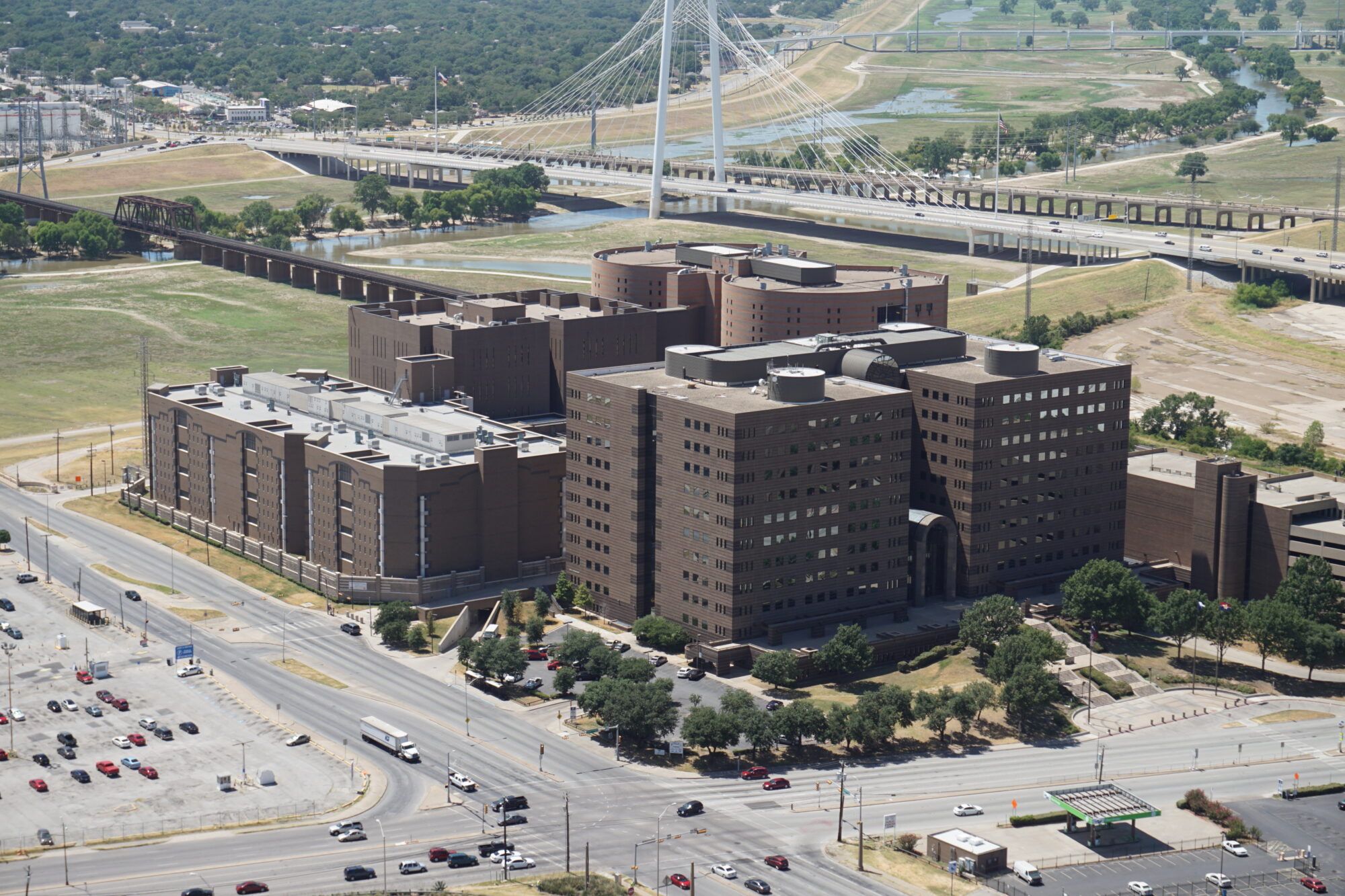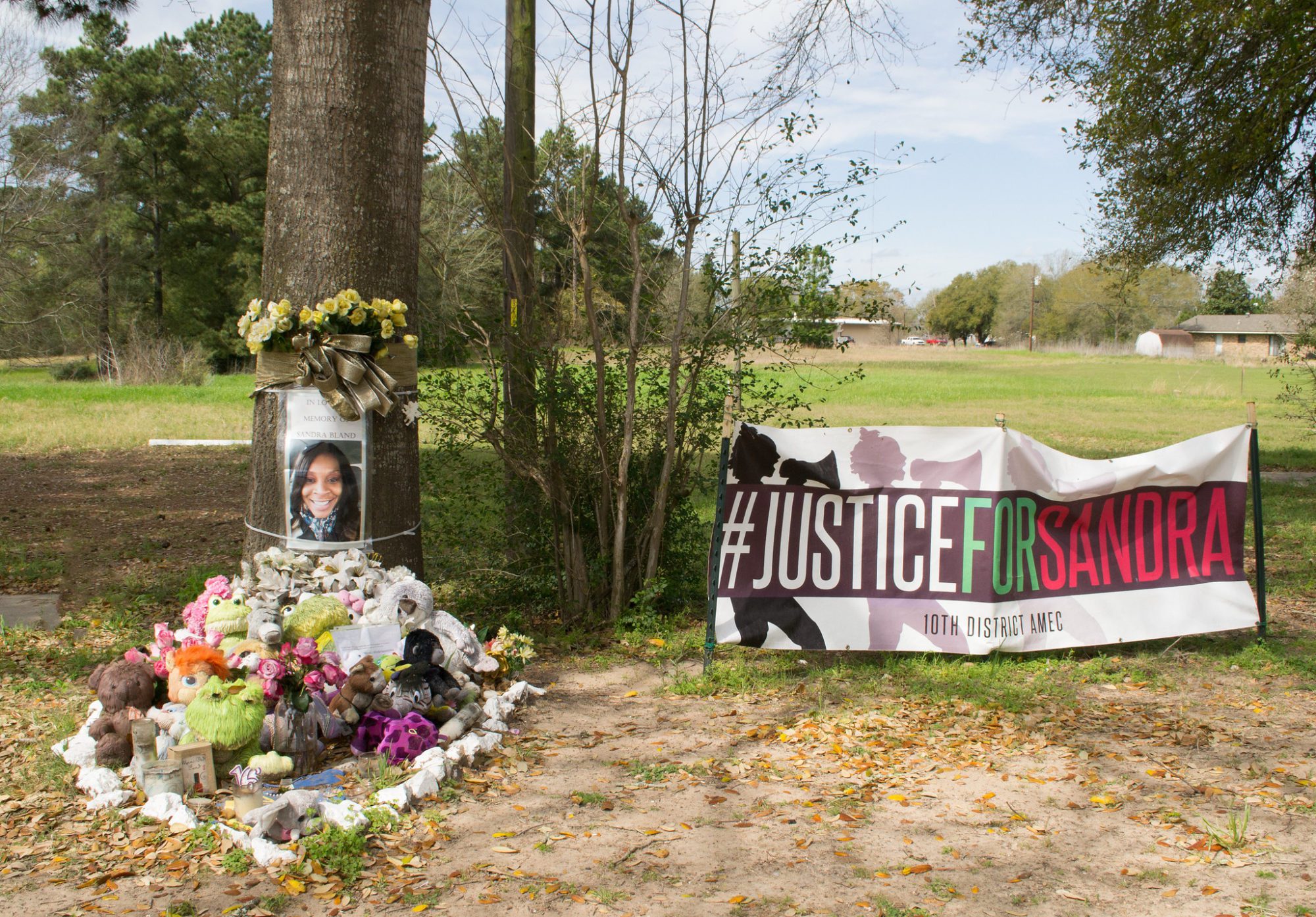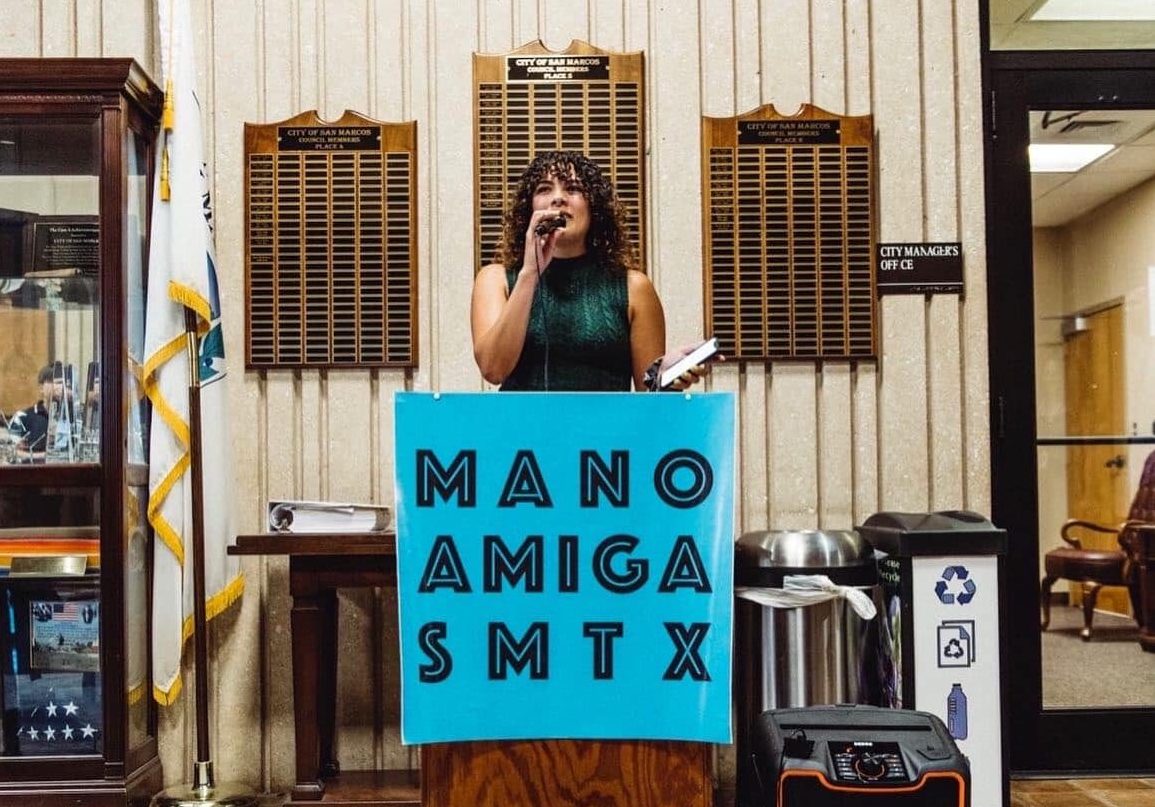The Texas Elections That Will Shape Policing and Punishment This Year
Deadly jails and disputes over bail and policing loom over the state's DA and sheriff races, with marquee elections starting next month in Harris, Tarrant, and Travis counties.
Michael Barajas | February 14, 2024
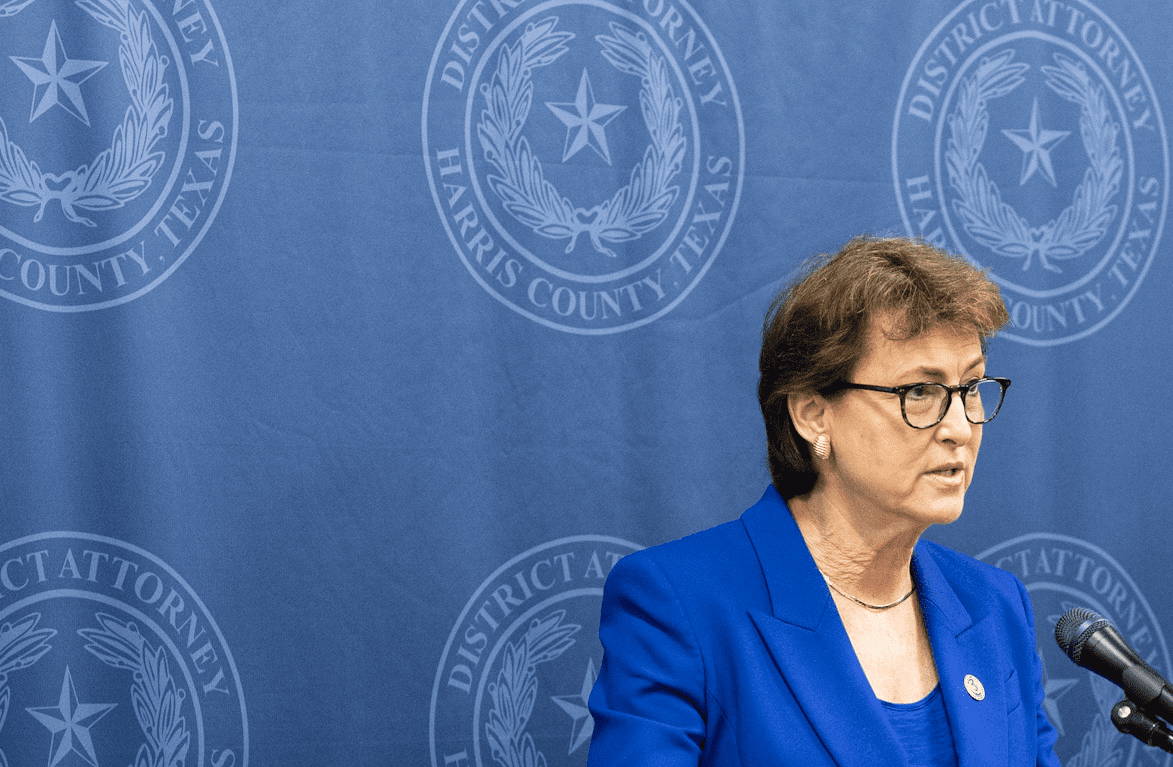

In the wake of the bumbling police response to the 2022 massacre of children and teachers at Robb Elementary School in Uvalde, Texas, survivors and families of the victims blamed local and state law enforcement officials and called for accountability. This year marks a rare opportunity for it. Uvalde County Sheriff Ruben Nolasco, who is running for reelection next month, was one of the local officials accused of leadership failures that resulted in police taking 77 minutes to confront and kill the shooter.
In public forums and letters to the local newspaper, Uvalde County residents have called on Nolasco to resign and refrain from running for office. But Nolasco is pressing ahead, and he faces three opponents in the Republican primary on March 5; one of them, Otto Arnim, has highlighted the sheriff’s role in the failed response to the massacre.
But Uvalde County DA Christina Mitchell is running unopposed in her own Republican primary on the same day, despite complaints that she has helped shield local cops from consequences for their failures during the shooting. She’ll also face no Democrat in the general election, as none filed to run against her by the December deadline.
And so it goes across the state: Hundreds of local elections will shape the future of law enforcement this year, but whether they lead to any change or accountability of course depends on who actually is running.
Sheriffs who run some of Texas’ largest lockups and have long faced scandals over deaths and abuses behind bars are now asking voters for another term, with some facing competitive races. But of the 14 counties whose jails are on notice with the state jail commission for violating minimum safety standards as of February 2024, seven are overseen by incumbent sheriffs who are running unopposed this year.
District attorney races may also shift the policy landscape in some of Texas’ largest cities, with disagreements over prosecution practices shaping contests in Harris County (Houston) and Travis County (Austin) in particular. But in large swaths of the state, these elections have already been decided: Only 28 percent of the state’s DA races this year drew multiple candidates by the December deadline, leaving dozens of incumbents like Mitchell virtually certain to secure another term.
This includes populous areas that have not seen a contested election in years. In Montgomery County, a county of nearly 650,000 north of Houston, Republican DA Brett Ligon is running with no primary or general election challenger for the third consecutive cycle.
Still, there’s plenty to watch in politics around criminal justice in Texas this year. With a recent state law granting local law enforcement new powers to arrest people whom they suspect are undocumented, sheriffs face mounting questions over how they’ll choose to cooperate with the state’s crackdown on immigrants; some are racing to bolster the law, while candidates in more Democratic counties like El Paso are promising to resist it.
Far-right officials and activists are also going after justices on the all-Republican Texas Court of Criminal Appeals in this year’s GOP primary—an intra-party grudge match that, as Bolts has reported, stems from the court’s 2021 ruling that limited Attorney General Ken Paxton’s authority over voter fraud prosecutions in the state. Meanwhile, organizers in the High Plains city of Lubbock are petitioning for a local ballot measure to decriminalize small amounts of marijuana, even as Paxton sues to block similar ordinances that voters recently passed in several other Texas cities.
To kick off our coverage of elections that will shape policing and criminal punishment in Texas this year, below is Bolts’ guide to some important storylines to start watching in the run-up to the March 5 primaries.
Deadly jails, and sheriffs that run them
Jail deaths have surged across the country in recent years, including in many of Texas’ largest counties. This year, with all of the state’s sheriff’s offices on the ballot, some are seeking re-election amid criticism over spiking deaths on their watch.
In Tarrant County, home to Fort Worth, jail deaths have risen dramatically under Sheriff Bill Waybourn, a Republican who first entered office in 2017 and is seeking re-election this year. At least 60 people have died in Tarrant County jail custody since Waybourn took over, compared to 25 in-custody deaths during the 8-year period that preceded him, according to state records and data compiled by nonprofit oversight group Texas Justice Initiative.
Waybourn, who is unopposed in the Republican primary next month but will face a Democratic challenger in November, has become a sort of national right-wing celebrity for his anti-immigrant rhetoric and efforts to police elections in Tarrant County. But at home, criticism has mounted over the rise in deaths and other scandals on his watch—including allegations of a cover-up following one particularly questionable jail death; a pregnant woman with severe mental illness who delivered her baby alone inside her cell (the child later died); and a disabled woman who left the jail comatose and covered in bruises. Last year, a group of Tarrant County activists working with the civil rights clinic at Texas A&M University’s law school filed a complaint with the U.S. Department of Justice seeking an investigation into the local jail.
“The Tarrant County Jail has failed the community at every turn,” the letter stated. “It has failed to provide medical care, to protect incarcerated people from risks associated with poor mental health, to perform checks, and to protect individuals from harm from jail staff and others in the jail.”
Both of Waybourn’s Democratic challengers—Patrick Moses, a retired federal officer, and Indya Murray, a local police officer—have cited problems at the jail as a reason for running. Voters will choose which of them moves to November’s general election against Waybourn on March 5.

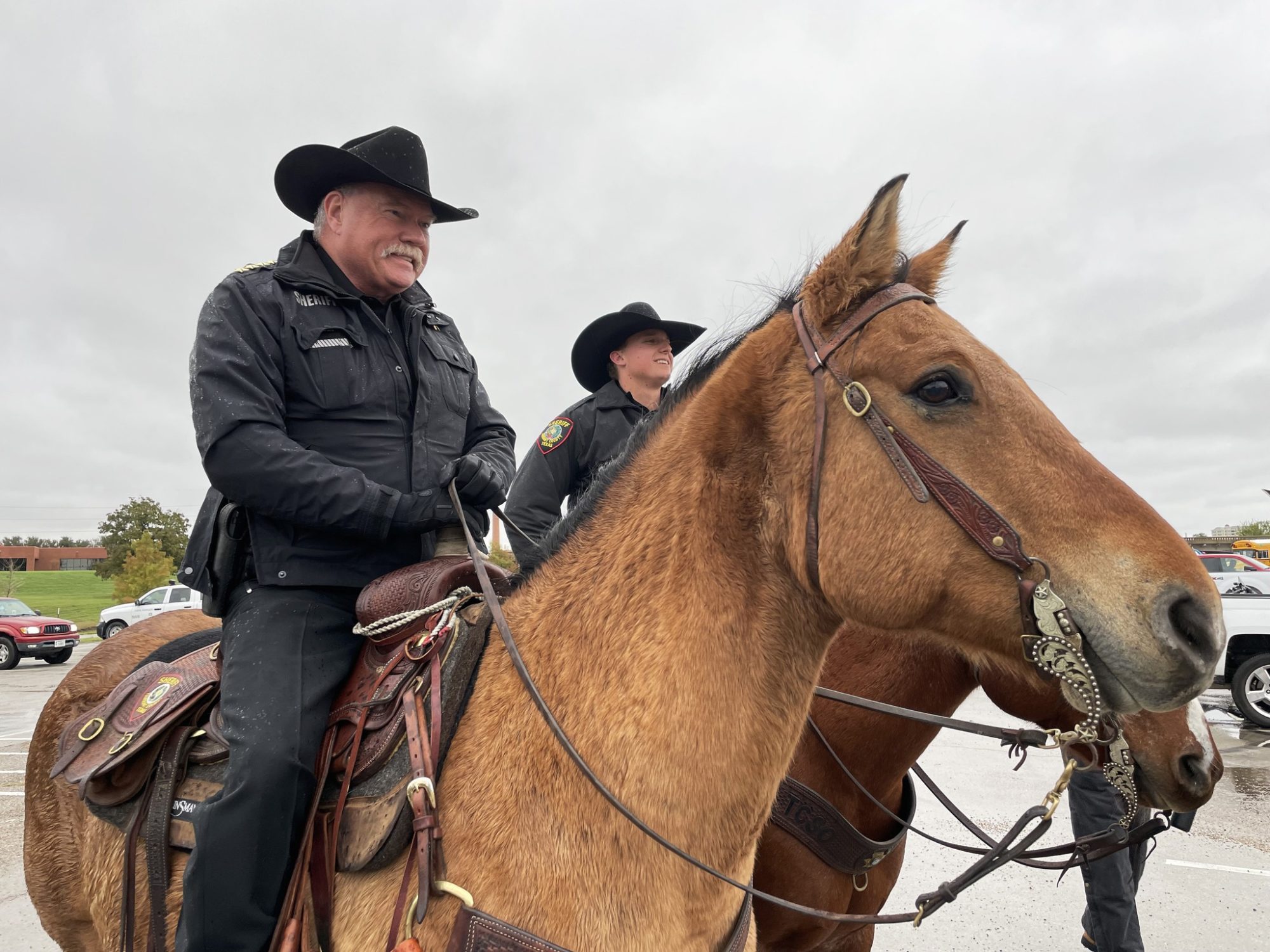
In a recent forum local officials organized to discuss problems at the jail, Waybourn defended his running of the facility and downplayed the scandals on his watch, blaming the deaths on drug addiction and other health problems that he said were outside the control of his staff—like “excited delirium,” a supposed condition that medical associations have long rejected but which cops still cite to explain in-custody deaths.
Other sheriffs who oversee large scandal-plagued lockups in Texas are also on the ballot this year, including Harris County Sheriff Ed Gonzalez, a Democrat first elected to the post in 2016, and Bexar County Sheriff Javier Salazar, another Democrat first elected that same year. As Bolts has reported, Harris County’s jail system, the largest in the state, has struggled with overcrowding and violence in recent years. The Bexar County jail has also seen a rise in deaths in recent years and a high suicide rate, a persistent problem at the jail for more than a decade.
As of publication, Harris County is one of the 14 counties with jails currently flagged by state authorities as non-compliant with minimum safety standards. Besides Gonzalez, the other sheriffs who are facing competition in these counties are all Republicans in rural areas like Newton County, which like Harris County is shipping people out-of-state as a solution to its jail overcrowding.
Boss Ogg fights her own party
When she won the Harris County DA race in 2016, Kim Ogg became the first Democrat to run Texas’ largest prosecutor’s shop in 40 years. She promised a vision of change that seemed to distance the office from its tough-on-crime heyday, focusing on reforms aimed at diverting people accused of low-level crimes, like marijuana possession, from jail.
The county has kept morphing politically since her first win, including electing other reform-minded Democrats to key offices as part of a blue wave in 2018, and adopting bail reform for misdemeanor cases in the aftermath of a lawsuit and federal ruling striking down the county’s previous practice of routinely detaining people with petty charges who couldn’t afford to pay for their pretrial freedom.
But during that time, Ogg has largely parted ways with this broader movement to reform Harris County’s criminal legal system, in part by fiercely resisting the efforts at bail reform. Now Ogg is running for a third term—this time with a much more sour relationship to many in her party. She first faces a challenge from a former staffer in the March 5 Democratic primary.
In recent years, reform-minded local officials who have butted heads with Ogg have found themselves in the crosshairs of her powerful office. Under Ogg, the DA’s office filed complaints with the state in an attempt to unseat a Democratic criminal court judge who was vocally critical of the DA. Her office attempted to prosecute another Democratic judge who had publicly sparred with her over bail reforms. Ogg’s office is also currently prosecuting former aides of Democratic Harris County Judge Lina Hidalgo, the county executive who has repeatedly clashed with the DA over criminal justice policy, over alleged improprieties involving a county contract.
Pushback from Ogg’s own party reached a boiling point late last year when Harris County Democrats officially admonished the DA. Local party precinct chairs voted overwhelmingly to pass a resolution stating that Ogg has “abused the power of her office to pursue personal vendettas against her political opponents, sided with Republicans to advance their extremist agenda, and stood in the way of fixing the broken criminal justice system.”
Ogg has dismissed the intra-party fight as “political drama” and argues she helped steer the office through Hurricane Harvey and the COVID-19 pandemic, crises that wreaked havoc on the local criminal legal system. (Ogg’s office and campaign didn’t respond to numerous requests for comment for this story.)
Ogg’s critics say her charging decisions have contributed to the deadly crisis at the local jail. Defense attorneys and former prosecutors have accused her of mismanagement and bungling some of the office’s core functions, such as screening charges filed by police. According to a recent investigation by the Houston Chronicle, cases prosecuted by the DA’s office that judges later tossed for lack of probable cause have skyrocketed under Ogg after she changed how the office reviews charges, resulting in more and more Houstonians jailed without a firm legal basis.
Sean Teare, a former prosecutor who is challenging Ogg in the Democratic primary, told Bolts that problems with the DA’s intake division reflect a larger “culture of fear” that she has fostered in the office. He claims that prosecutors are reluctant to dismiss weak cases, or allow for pretrial release or plead down charges when appropriate, for fear that a case might later generate critical headlines. Teare argues that the environment has compounded the looming backlog in criminal cases facing the office.


“You can make the recommendation for plea bargains at the highest level possible, just never move off of it, and the case will never plea,” he said. “It will pend for three and a half years and someone else will have to try it—even if we know we can’t make the case or that’s not the right recommendation, because that’s the way you don’t get in trouble.”
While Democrats have come to dominate countywide elections in Harris County, the primary winner will face Dan Simons, a local Republican lawyer, in the general election.
Austin’s election unfolds under a removal threat
Just a month before a Minneapolis officer murdered George Floyd and sparked a national uprising, Austin cops had killed Mike Ramos, another unarmed Black man whose name, along with Floyd’s, eventually became a rallying cry during the seismic protests that hit Texas’ capital city that summer. Austin police only reinforced their reputation for violence during the 2020 protests, shooting crowd-control munitions like “bean bag” rounds at unarmed protesters, resulting in numerous severe injuries.
José Garza, a former public defender and labor rights organizer, successfully ran for Travis County DA that year, vowing to hold police accountable. Within months, prosecutions against abusive cops started to rise. In early 2022, about a year after taking over, Garza announced charges against more than a dozen Austin officers accused of assault and deadly conduct during the 2020 protests.
Garza’s first term has been a lesson in what kind of policy changes local reform-minded DAs can enact—from prosecuting police to improving the office’s historically harmful treatment of sex assault survivors and piloting a restorative justice program. Garza says the office has also dramatically expanded access to pretrial diversion programs, so that most people charged with non-violent offenses are now connected with some kind of service, whether job training or treatment, instead of being convicted. In an interview with Bolts, Garza pointed to a recent case, a single father charged with cocaine possession, as an example: diversion meant prosecutors sending the man to the local carpenters union for a training program and dismissing the charge when he completed it.
“The carpenters told us he was their best student, and so he ended his contact with our criminal legal system in Travis County, not as a convicted felon but as a carpenter’s apprentice,” Garza said.
But as he stepped up police prosecutions and other reforms, Garza has drawn the hostility of law enforcement unions and their allies, a familiar pattern to other progressives in his office. And as he now seeks a second term, Garza first faces a March 5 Democratic primary against Jeremy Sylestine, a former prosecutor who has accused him of painting a “political bullseye” on APD officers.


Sylestine has also aired campaign ads accusing the DA of being too lenient on plea deals (Sylestine’s campaign didn’t respond to requests for comment for this story). Daniel Betts, the only GOP candidate, has encouraged Republican voters to cross party lines to vote in the Democratic primary against Garza, which is allowed under Texas’ open primary system.
In their efforts against Garza, police groups are also looking beyond elections. Last year, Republicans in the Texas legislature rewrote state law to allow for courts to remove local DAs who choose not to pursue certain types of crimes. Aimed at a handful of ”rogue prosecutors” who, like Garza, had promised not to prosecute people for abortion, the new law also threatens to undermine local attempts to decriminalize marijuana possession.
Law enforcement groups launched a website to collect complaints against Garza the week the new prosecutor-removal law took effect last September. In December, the GOP candidate who lost to Garza in the 2020 general election helped file a petition to remove him from office, citing the new law.
Garza in December ended up dismissing the criminal charges against most of the Austin police officers his office was prosecuting for excessive force during the 2020 protests. Garza says those cases were derailed late last year when APD sent his office an internal review showing that police officials knew ahead of the protests that the department’s crowd-control munitions were dangerous and could maim people. Garza also says police conveniently did not investigate or disclose those facts until the three-year statute of limitations had passed for any potential indictments against higher-ups.
Garza insists that police prosecutions are among the most difficult cases his office handles but he says he’s using his perch to push for police oversight and accountability in ways that go beyond prosecuting cases. In December, even as he dropped the charges against officers who injured protesters in 2020, Garza says he asked Austin’s mayor to join him in calling for a U.S. Department of Justice investigation into APD’s use of force and crowd-control tactics during the 2020 protest.
“I’m really more convinced than ever that there really needs to be deep, systemic change in the Austin Police Department,” Garza said.
Stay up-to-date
Support us
Bolts is a non-profit newsroom that relies on donations, and it takes resources to produce this work. If you appreciate our value, become a monthly donor or make a contribution.




